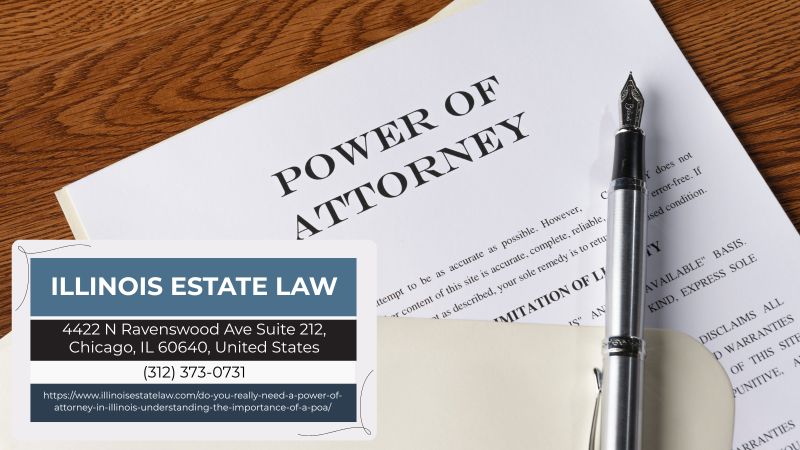Life can change in an instant, and having a plan in place can make all the difference. In Illinois, a Power of Attorney (POA) is more than just a legal form; it’s your safeguard against uncertainty. Residents of Chicago, Naperville, or Springfield, often with guidance from an estate planning lawyer in Chicago or their local area, can use this essential document to place their medical care, financial matters, and personal decisions in trusted hands, should they ever be unable to act for themselves.
At Illinois Estate Law, our Chicago estate planning attorney helps individuals and families create customized Powers of Attorney that meet every legal requirement and reflect their unique goals. From guiding you through Illinois’ statutory POA forms to ensuring your agent’s authority is properly recognized by banks, hospitals, and courts, we make the process simple and stress-free. Contact Illinois Estate Law at (312) 373-0731 to schedule a consultation and get peace of mind knowing your affairs are protected.
What is a Power of Attorney?
A Power of Attorney is a legal document that allows a person (the “principal”) to grant legal authority to another individual (the “agent” or “attorney-in-fact”) to make decisions on their behalf. In Chicago, this commonly includes financial transactions with local banks and title companies, or healthcare decisions with major hospitals and clinics. The scope depends on the type of POA you create.
Types of Power of Attorney in Illinois
Illinois recognizes several types of Powers of Attorney, each designed for specific circumstances:
- Durable Power of Attorney for Health Care: This document allows your agent to make healthcare decisions if you become unable to do so yourself. For example, it ensures your preferences about life support or treatment options are honored.
- Durable Power of Attorney for Property: This gives your agent authority over financial matters, including managing bank accounts, paying bills, and making property decisions. For instance, they can handle the sale of your house if you’re incapacitated.
- Springing Power of Attorney: Illinois statutory forms are effective when signed unless you specify a future date or event (e.g., a physician’s written determination that you’re incapacitated). You can make a POA “springing” by completing the form’s effectiveness section. It can be beneficial for those who want to maintain control until they truly need assistance.
Knowing these types is key to making informed choices about future planning.

The Value of Power of Attorney
Having a Power of Attorney brings a host of benefits. Here’s why it is essential:
1. Ensures Your Wishes are Followed
A POA allows you to express your medical and financial preferences. For example, naming someone to decide your treatment options ensures that your desires are met, even if you’re unable to communicate them.
2. Avoids Court Intervention
Without a POA, if you become incapacitated, your family might need to go through a lengthy court process to appoint a guardian. This can take weeks or months, leading to stress and high costs. With a POA, your agent has the power to act without delay.
3. Provides Financial Management
An unexpected illness or accident can disrupt your ability to manage finances. If your agent is appointed, they can ensure your bills are paid on time. According to the U.S. Administration for Community Living, someone turning age 65 today has almost a 70% chance of needing some type of long-term care during their remaining years.
4. Customization of Your POA
You can tailor your Power of Attorney in Illinois to meet your needs. For example, you might choose to limit your agent’s authority only to specific financial decisions, ensuring it aligns with your preferences.
5. Peace of Mind for You and Your Family
Knowing you have a plan in place significantly reduces anxiety for both you and your loved ones. They will feel secure knowing they can act according to your wishes, preventing conflicts during challenging times.
| Key Benefit | Explanation |
|---|---|
| Ensures Your Wishes are Followed | The Illinois Power of Attorney Act allows a person to appoint an agent to make decisions on their behalf if they cannot communicate their wishes. |
| Avoids Court Intervention | Without a Power of Attorney, a court may need to appoint a guardian, which can be time-consuming and expensive. |
| Provides Financial Management | A durable Power of Attorney in Illinois remains valid if the person becomes incapacitated, allowing bills and finances to be managed smoothly. |
| Customization of Your POA | Illinois law allows people to limit or specify what powers their agent has, tailoring the document to their individual needs. |
| Peace of Mind for You and Your Family | Having a Power of Attorney in place helps reduce stress for families and ensures decisions are made according to personal wishes. |
Legal Requirements for Power of Attorney in Illinois
To have an effective Power of Attorney, it’s essential to meet Illinois legal requirements:
- Written Document: The POA must be in writing, clearly stating its purpose and the agent’s granted powers.
- Signatures: The principal must sign the document, which also requires notarization or the signatures of two witnesses.
- Capacity: The principal must be mentally competent when signing to ensure the POA’s validity.
Being aware of these requirements ensures your Power of Attorney is legally binding.
Key Powers to Include in Your POA
A solid Illinois power of attorney lets your agent act when you cannot. For a property POA, keep the categories that fit your life and cross out the rest. Common powers you will likely want include real estate transactions so your agent can sign a deed and deal with taxes or assessments on a home in Cook County, financial accounts so your agent can pay bills and manage financial concerns, and access to safe deposit boxes. Illinois law lists these categories and explains what each one covers. If a title is kept on the form, your agent gets all rights in that category. Note that these statutory categories do not authorize your agent to make gifts or change beneficiary designations without specific language to the contrary.
For a health care POA, you can give your agent clear authority to talk with your doctors, see medical records, consent to or refuse treatment, choose hospitals or long-term care, and make end-of-life decisions that align with your wishes. This includes the ability to accept, withdraw, or decline life-sustaining treatment. In Chicago, that may mean speaking with teams at Northwestern Memorial, Rush, or the University of Chicago Medicine during a crisis. The Illinois statutory health care form describes these powers in plain terms.
A Chicago estate planning attorney can tailor the statutory forms, add limited gifts language if appropriate, coordinate HIPAA access, and write sensible limits so that relevant institutions can recognize and follow your agent’s authority without delay. The statutory short forms referenced above are widely used across Illinois and are designed for that purpose.
Selecting the Right Agent
Choosing your agent is one of the most critical steps. Here are factors to keep in mind:
Trustworthiness
Your agent will control significant decisions; therefore, trust is non-negotiable. Look for someone who understands your values and will execute your wishes honorably.
Competence
Make sure your agent has the necessary skills to handle financial or medical matters. They should be organized and responsible enough to make sound decisions on your behalf.
Availability
Select someone who is accessible and can respond quickly. Their readiness to act can be vital, especially during medical emergencies or financial crises.
Steps to Create a Power of Attorney in Illinois
Crafting a Power of Attorney in Illinois is straightforward. Follow these steps:
- Determine Your Needs: Decide if you need a Durable Power of Attorney for Health Care, Property, or both. Know what specific powers you want to assign.
- Choose Your Agent: Identify a responsible individual you trust to represent your interests.
- Draft the Document: Use legal templates or hire an attorney to ensure the POA meets your requirements and complies with state law.
- Sign and Notarize: Once the document is prepared, sign it in front of a notary or two witnesses to validate it.
- Distribute Copies: Share copies with your agent and relevant parties, including healthcare providers or family members.
Creating a POA may seem intimidating, but it is a necessary step to secure your future.
Chicago Estate Planning Attorney – Illinois Estate Law

Mary Liberty
Mary Liberty is a Chicago-based estate planning and probate attorney who combines modern convenience with authentic human connection. As founder, she set out to make high-quality legal planning accessible, affordable, and stress-free for Illinois families. Her work spans estate planning, uncontested probate, and her innovative partial probate service, helping clients transition their cases smoothly when they need a fresh start with better communication and transparency.
Mary’s practice operates on a 100% flat-fee model with no hourly billing or hidden costs, allowing clients to plan with confidence from day one. Her firm enables clients to complete the entire legal process, from consultation to signing, without leaving home. Clients consistently describe Mary as approachable, detail-oriented, and refreshingly transparent, trusting her to deliver clear guidance and compassionate support during life’s most personal planning decisions.
Common Misconceptions About Power of Attorney
Many misconceptions can prevent people from establishing a Power of Attorney. Let’s address some of them:
Myth 1: I’m Too Young to Need a Power of Attorney
Contrary to popular belief, POAs are not just for older adults. Health issues can arise at any age, making it wise to have a POA prepared.
Myth 2: My Family Will Automatically Make Decisions for Me
Even if your family wants to help, they might not have the legal authority to act without your POA. Appointing an agent allows your preferences to be honored.
Myth 3: A Power of Attorney Takes Away My Control
A well-drafted POA actually allows you to control who makes decisions and under what conditions. You can revoke or change it at any time while you are mentally competent.
Moving Forward With Your Illinois Power of Attorney
A Power of Attorney in Illinois is not just a legal document; it is a vital part of planning for the future. It’s a practical plan that keeps your finances, health care, and family protected when life is unpredictable. Choosing the right agent, using Illinois’ statutory forms, and tailoring the powers to your needs helps banks, hospitals, and institutions in Chicago and Cook County recognize your agent’s authority without delay.
If you’re asking, “Do I really need a Power of Attorney in Illinois?” the answer is simple: creating one now gives you control, reduces stress for loved ones, and avoids costly court intervention later.
Contact Illinois Estate Law at (312) 373-0731 to schedule your consultation and put a legally sound, Illinois-compliant POA in place today.




